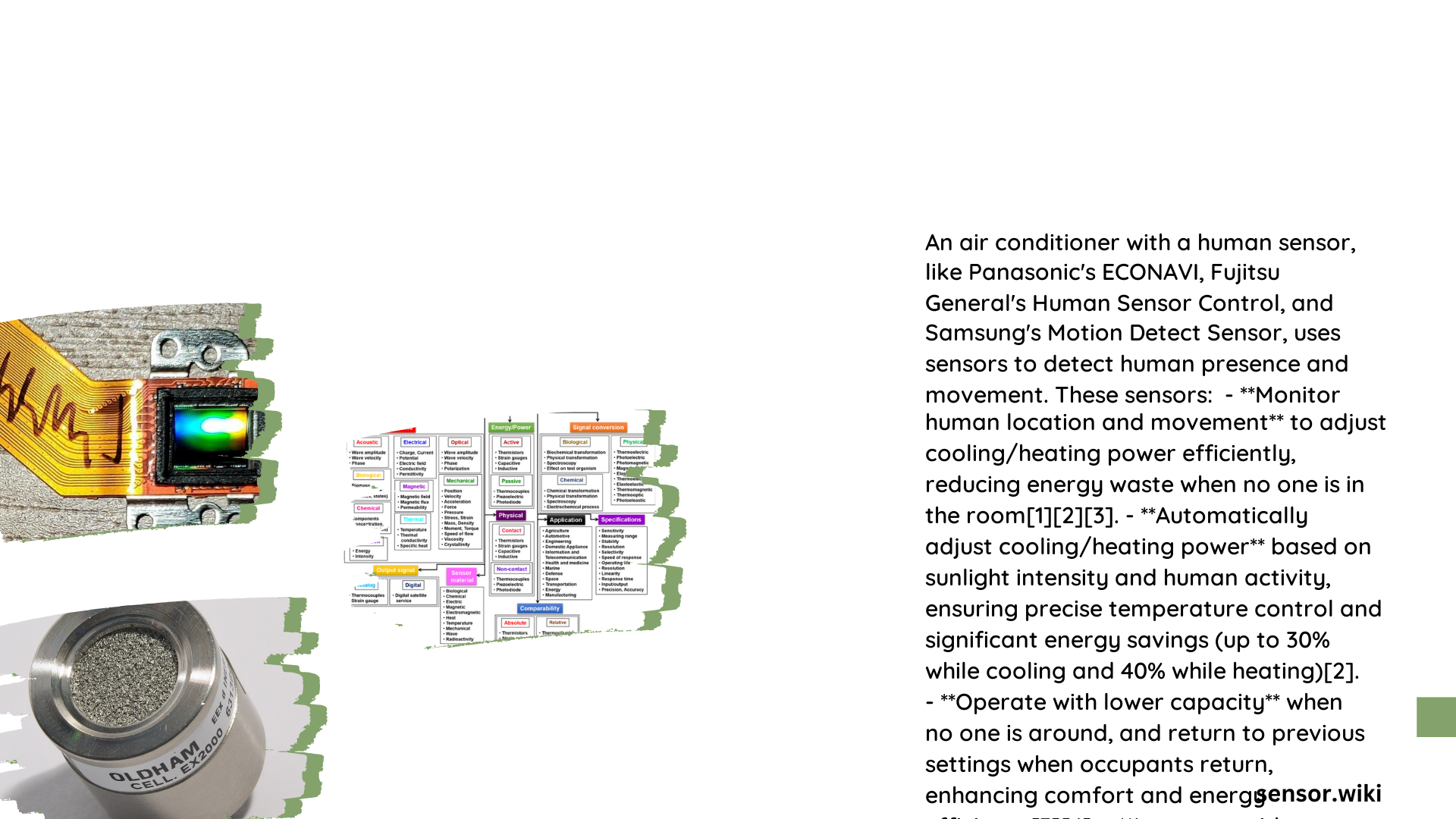Modern air conditioning technology has dramatically evolved with the introduction of human sensor systems, enabling intelligent temperature management that adapts dynamically to occupancy. These advanced air conditioners utilize sophisticated infrared and motion detection technologies to optimize cooling performance, reduce energy consumption, and enhance user comfort by precisely tracking human presence within a room.
What Makes Human Sensor Air Conditioners Unique?
How Do Human Sensors Detect Occupancy?
Human sensor air conditioners employ cutting-edge detection mechanisms:
- Infrared Motion Detection: Captures heat signatures of human bodies
- Passive Sensor Technology: Monitors room movement without active emissions
- 360-Degree Coverage: Comprehensive room scanning capabilities
| Sensor Type | Detection Range | Response Time | Energy Savings |
|---|---|---|---|
| PIR Sensor | Full Room | Immediate | 10-30% |
What Are the Primary Benefits of Human Sensor Technology?
Energy Efficiency Transformation
Traditional air conditioning systems operate continuously, consuming substantial electricity. Human sensor air conditioners revolutionize this approach by:
- Automatically reducing cooling when rooms are empty
- Adjusting temperature based on real-time occupancy
- Minimizing unnecessary energy expenditure
Intelligent Comfort Management
The human sensor technology provides unprecedented comfort control through:
– Precise temperature tracking
– Personalized cooling zones
– Adaptive temperature modifications
How Much Can You Save with Human Sensor Air Conditioners?
Potential financial benefits include:
- Annual Energy Savings: $100 – $300
- Payback Period: 2-5 years
- Reduced Electricity Consumption: 10-30% lower compared to traditional systems
What Technical Specifications Define These Advanced Systems?
Key technical characteristics include:
- Sensor Type: Passive Infrared (PIR)
- Detection Coverage: Entire room
- Communication Protocols: Wi-Fi enabled
- Remote Management: Smartphone/tablet compatibility
Are Human Sensor Air Conditioners Compatible with Smart Homes?
Integration capabilities encompass:
– Home automation system compatibility
– Central management protocols support
– Mobile application control
– Easy-to-use interface design
What Factors Influence Purchase Decisions?
Considerations for potential buyers:
| Factor | Average Range |
|---|---|
| Initial Cost | $1,500 – $3,500 |
| Installation | $500 – $1,500 |
| Annual Maintenance | $100 – $200 |
Who Should Consider Human Sensor Air Conditioners?
Ideal for:
– Energy-conscious homeowners
– Tech-savvy individuals
– Those seeking personalized cooling solutions
– Environmentally responsible consumers
Future of Air Conditioning Technology
Human sensor air conditioners represent a significant technological leap, promising:
– Enhanced energy efficiency
– Personalized comfort experiences
– Reduced environmental impact
– Intelligent home integration
Conclusion

The emergence of human sensor air conditioners marks a transformative moment in home cooling technology, offering unprecedented efficiency, comfort, and smart functionality.
